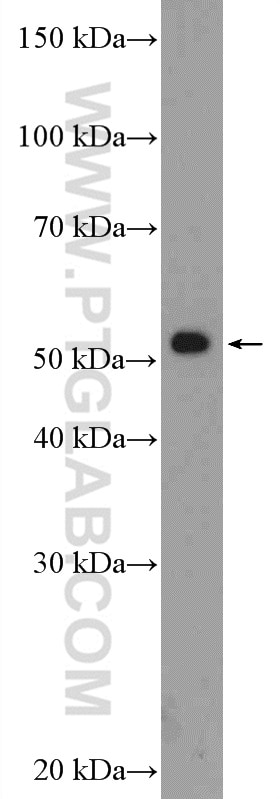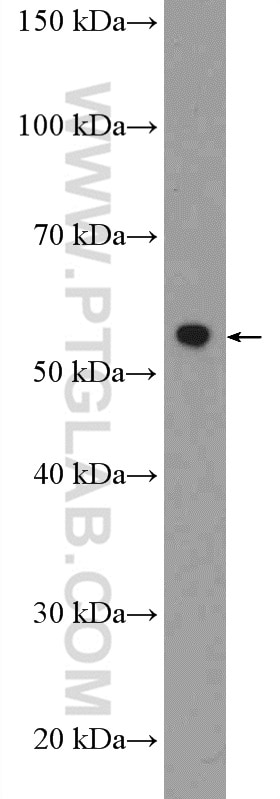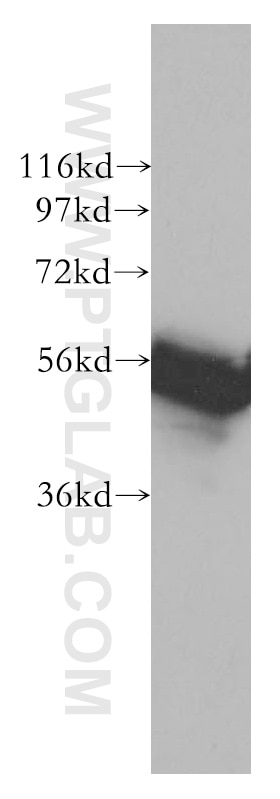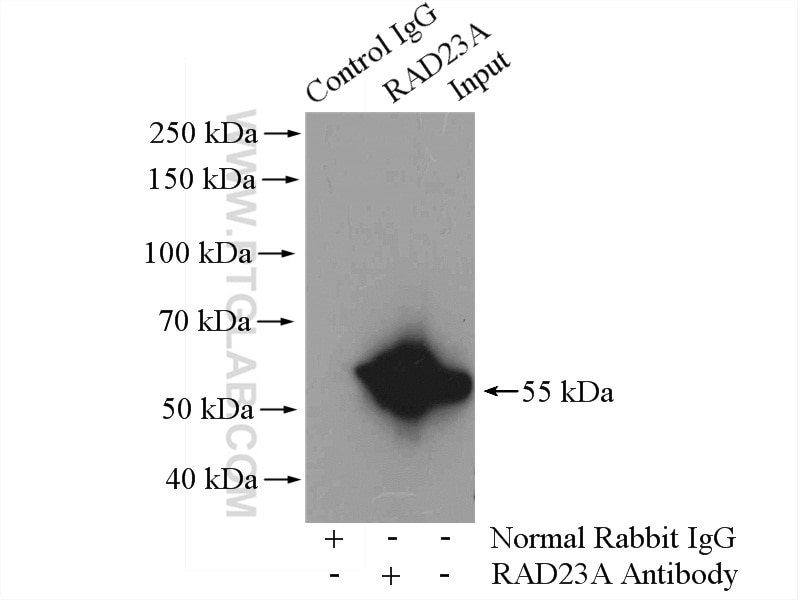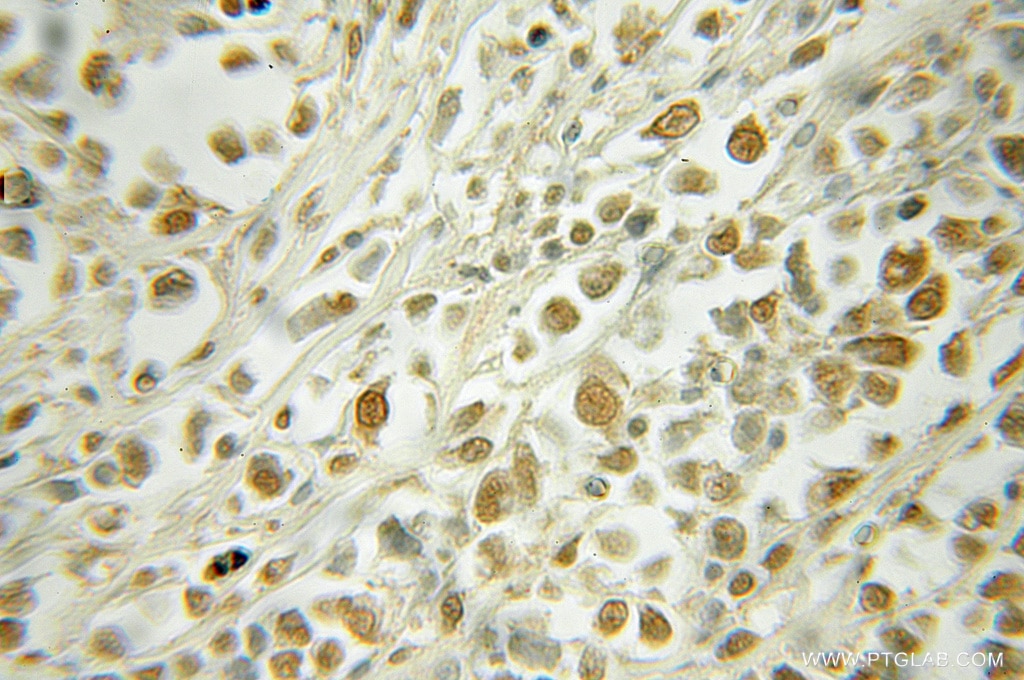Validation Data Gallery
Tested Applications
| Positive WB detected in | mouse spleen tissue, Jurkat cells, rat spleen tissue |
| Positive IP detected in | Jurkat cells |
| Positive IHC detected in | human lymphoma tissue Note: suggested antigen retrieval with TE buffer pH 9.0; (*) Alternatively, antigen retrieval may be performed with citrate buffer pH 6.0 |
Recommended dilution
| Application | Dilution |
|---|---|
| Western Blot (WB) | WB : 1:500-1:2000 |
| Immunoprecipitation (IP) | IP : 0.5-4.0 ug for 1.0-3.0 mg of total protein lysate |
| Immunohistochemistry (IHC) | IHC : 1:20-1:200 |
| It is recommended that this reagent should be titrated in each testing system to obtain optimal results. | |
| Sample-dependent, Check data in validation data gallery. | |
Published Applications
| WB | See 3 publications below |
| IF | See 1 publications below |
Product Information
51033-1-AP targets RAD23A in WB, IP, IF, IHC, ELISA applications and shows reactivity with human, mouse, rat samples.
| Tested Reactivity | human, mouse, rat |
| Cited Reactivity | human, mouse, monkey |
| Host / Isotype | Rabbit / IgG |
| Class | Polyclonal |
| Type | Antibody |
| Immunogen | RAD23A fusion protein Ag0716 相同性解析による交差性が予測される生物種 |
| Full Name | RAD23 homolog A (S. cerevisiae) |
| Calculated molecular weight | 40 kDa |
| Observed molecular weight | 55 kDa |
| GenBank accession number | BC014026 |
| Gene Symbol | RAD23A |
| Gene ID (NCBI) | 5886 |
| RRID | AB_2253493 |
| Conjugate | Unconjugated |
| Form | Liquid |
| Purification Method | Antigen affinity purification |
| UNIPROT ID | P54725 |
| Storage Buffer | PBS with 0.02% sodium azide and 50% glycerol pH 7.3. |
| Storage Conditions | Store at -20°C. Aliquoting is unnecessary for -20oC storage. |
Background Information
RAD23A, also named as HHR23A, belongs to the RAD23 family. It is a multiubiquitin chain receptor involved in modulation of proteasomal degradation. RAD23A binds to 'Lys-48'-linked polyubiquitin chains in a length-dependent manner and with a lower affinity to 'Lys-63'-linked polyubiquitin chains. It is proposed to be capable to bind simultaneously to the 26S proteasome and to polyubiquitinated substrates and to deliver ubiquitinated proteins to the proteasome. It is involved in nucleotide excision repair and is thought to be functional equivalent for RAD23B in global genome nucleotide excision repair (GG-NER) by association with XPC. In vitro, the XPC:RAD23A dimer has NER activity. Can stabilize XPC. It is also involved in vpr-dependent replication of HIV-1 in non-proliferating cells and primary macrophages and is required for the association of HIV-1 vpr with the host proteasome. This antibody is a rabbit polyclonal antibody raised against a fusion protein of full length human RAD23A.
Protocols
| Product Specific Protocols | |
|---|---|
| WB protocol for RAD23A antibody 51033-1-AP | Download protocol |
| IHC protocol for RAD23A antibody 51033-1-AP | Download protocol |
| IP protocol for RAD23A antibody 51033-1-AP | Download protocol |
| Standard Protocols | |
|---|---|
| Click here to view our Standard Protocols |
Publications
| Species | Application | Title |
|---|---|---|
Front Immunol PDLIM7 Synergizes With PDLIM2 and p62/Sqstm1 to Inhibit Inflammatory Signaling by Promoting Degradation of the p65 Subunit of NF-κB. | ||
Cell Rep Autism-linked UBE3A gain-of-function mutation causes interneuron and behavioral phenotypes when inherited maternally or paternally in mice |
